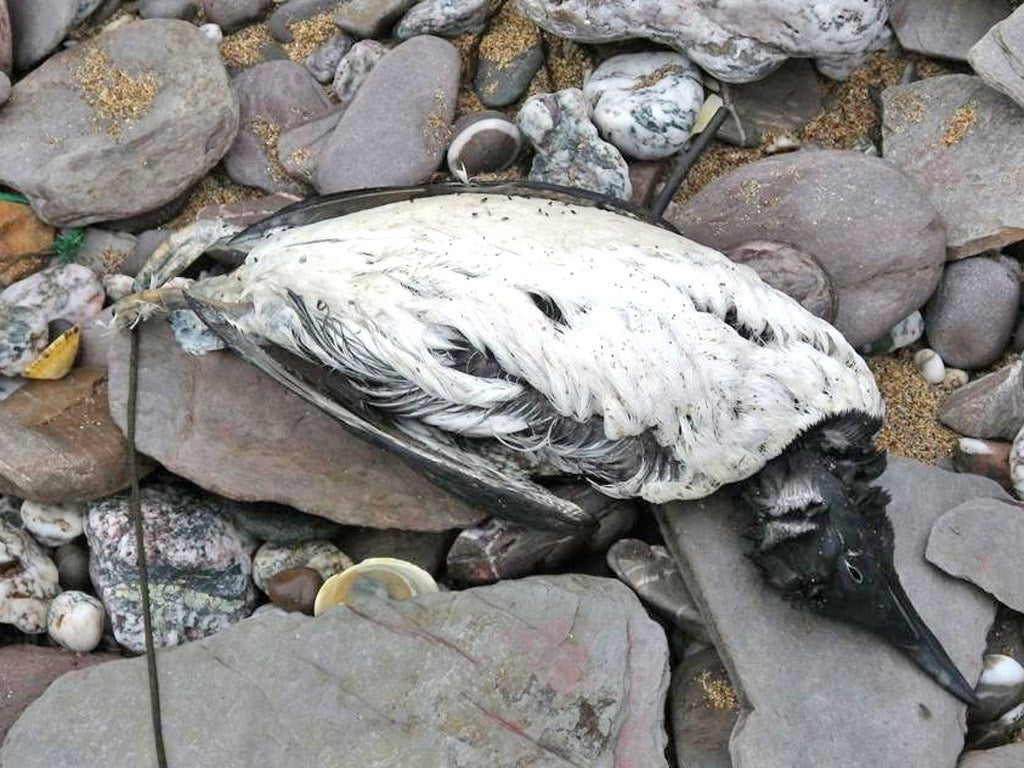Pollution may ‘wipe out’ a generation of seabirds

An entire generation of seabirds could be wiped out on a section of the British coastline after hundreds were found dead last week, wildlife authorities have warned.
More than 700 guillemots, razorbills and puffins have been washed up in Devon and Cornwall in the last fortnight covered in a clear sticky substance thought to be polyisobutene (PIB).
Wildlife agencies in the two counties said the number of birds killed or rendered helpless could now reach thousands and warned that a “whole generation of seabirds” may have been wiped out by a single pollution incident.
PIB is an oil additive often used to improve the performance of lubricating oil and is considered a hazard to the marine environment. But it is legal to discharge it in certain quantities directly into the sea.
The Cornwall Wildlife Trust renewed calls for PIB discharges to be outlawed by the International Maritime Organisation. It said “urgent action” was required to prevent “further death and destruction” in the South West.
“It has been a terribly sad time for everyone seeing these beautiful birds washing up dead in horrific numbers along our coastline,” said Abby Crosby, a marine conservation officer for Cornwall Wildlife Trust.
The Maritime and Coastguard Agency said it had been unable to trace the source of the spill, although it appears to be the same as that which affected more than 300 birds along a 200-mile stretch of coastline in January and February.
Join our commenting forum
Join thought-provoking conversations, follow other Independent readers and see their replies
Comments
Bookmark popover
Removed from bookmarks